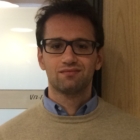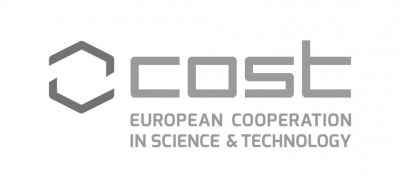 Michele Mioni is a researcher at Otto-Friedrich de Bamberg University, Germany. His research focuses on the connections between war and welfare, including the global history of the social insurance industry, especially in colonial and postcolonial areas. Michele Mioni was a Visiting-Researcher at LARCA working on Franco-American Health Sector Cooperation and International Associations fighting Tuberculosis during and after First World War. The study is funded by COST-Action CA18119 « Who Cares in Europe? ».
Michele Mioni is a researcher at Otto-Friedrich de Bamberg University, Germany. His research focuses on the connections between war and welfare, including the global history of the social insurance industry, especially in colonial and postcolonial areas. Michele Mioni was a Visiting-Researcher at LARCA working on Franco-American Health Sector Cooperation and International Associations fighting Tuberculosis during and after First World War. The study is funded by COST-Action CA18119 « Who Cares in Europe? ».
Can you introduce yourself and tell us about the research you are currently doing in Paris?
I am a postdoctoral researcher at the Otto-Friedrich University of Bamberg in Germany. My research is primarily concerned with the history of social policy, which I pursue along three lines of investigation: warfare-to-welfare studies, global history, history of social movements (i.e., unions and voluntary associations). In all these areas, I am mainly concerned with social security/social insurance and healthcare policy.
In 2019 I joined the COST-Action CA18119 “Who Cares in Europe?”, where I co-organised with Stefano Petrungaro (Ca’ Foscari University of Venice) a research group on the “social marginals” and the mixed economy of welfare in Europe. Still in the framework of the COST-Action, together with Marco van Leeuwen (Utrecht University) I am currently working on a project on the transnational social movements, and their role in the development of welfare policies in (post-)colonial areas.
My last research project within the COST focuses on the links between the two world wars and social reforms in Europe. I am pursuing this initiative in collaboration with Fabien Théofilakis (Centre Marc Bloch of Berlin and Paris 1 Panthéon-Sorbonne) and Simon Unger-Alvi (German Historical Institute of Rome). The aim is to emphasise the role of international organisations, voluntary associations, transnational social movements in the nexus between warfare and social policy. By so doing, this line of research shift emphasis from institutionally-focused perspectives, to highlight the relation between social mobilisation(s) and State policy, as well as the interconnections.at regional, national, and supranational levels.
My current visiting at LARCA relates to this last project. I am working on the national and international action against tuberculosis during the Great War, with a focus on the Franco-American cooperation during the conflict, and on the rise of a worldwide associational network after 1918. French experts and organisations played a central part in this story, as proved also by the huge documentary repertoires and archives on this subject that are located here in Paris.
Can you tell us more about the sources for this research in Paris?
My research has its point of departure in the existing studies on the development of healthcare policy in France during and after the Great War, and in the literature concerning the international cooperation on this matter (i.e., the role of the League of Nations Health Organisation and of US foundations like Rockefeller and Carnegie). I would like to connect the national dimension of the French action against tuberculosis with the wider international debate, by scrutinising the transfers of medical knowledge and practices across the Atlantic, and possibly beyond. Moreover, I would also like to examine the significance of these exchanges in the construction of a multilateral global social policy and an epistemic community concerned with health progress.
The primary sources are mainly edited documents of the time and archival repertoires. In this last respect, I checked the records of social reformers and politicians such as André Honnorat and Jules-Louis Breton at the Archives Nationales. I also surveyed the files of the Health Services of the French Army, split between the Service Historique de la Défense and the archives of the Musée du Service de Santé des Armées. The collections of the Comité National de Défense contre la Tuberculose – one of the most important associations that prompted and coordinated the antitubercular campaigns during and after the Great War – have also been fundamental for my research. These holdings are stored at the archives of the Institut Pasteur, and they also contain interesting correspondence between the Rockefeller Foundation and the French counterparts. Unfortunately, it has not been possible to get access to the holdings of the Union Internationale contre la Tuberculose, that was established in Paris in 1920 and played a significant role in the internationalisation of antitubercular action. This kind of inconvenience happens when dealing with associational archives. I hopefully managed to work around this issue, by resorting to the use of bulletins and other sources edited by this association and individuals who campaigned against the TB.
From this research, what trends and themes have emerged as the most promising pathways for future research projects?
As often happens, I had to adjust my initial research questions according to the sources I collected, and now I am re-organising my arguments for the working paper I will present during a forthcoming workshop we organised in Rome. Usually, these documentary surveys are a time for thought on the ongoing research and on the further avenues.
On the one hand, I do want to keep working on how modern warfare prompted social reform, by mobilising public and private actors at national and international levels. In this respect, my aim would be to take further steps and have research outputs over the next year. On the other hand, however, I intend to expand this topic beyond just the links between war and social progress, by adopting a wider geographical and chronological perspective.
A recurrent theme I came across during this research concerned the international structures and the associational connections shaping the epistemic community that discussed public health and social diseases on both sides of the Atlantic, and well beyond. Various studies already dealt with the cooperation between US philanthropic institutions and European countries in this field. The case with France and the Rockefeller Foundation, for instance is quite well-known. However, I believe there is room for deepening our knowledge on the intergovernmental and non-governmental channels and brokers through which expertise, practices, technical-financial support flew.
It would be interesting, for instance, to expand this investigation to the reception of “transnational” medical ideas and knowledge at national levels, including in this picture extra-European and (post-)colonial areas. This would rise further issues of global conceptual history, such as for instance the semantics of social and healthcare policy, and how this reflected into the adaptation of medical practices from the global to the local, which was an issue that I had the opportunity to discuss with Stéphanie Prévost, Jean-Christian Vinel and Laura Carter during my stay here.
For now, thus, the visiting period allowed me to consolidate the documentary bases of my current study, but it also helped me to gather ideas on research agendas to develop in the future. I know it is still a general plan, but I will have time to fine-tune the most promising and appropriate threads of research. My stay at LARCA has been a helpful brainstorming, and to be honest this very interviewed also helped me a lot to focus some points.
Did you have the opportunity to exchange views with Larca members during this visiting, and how did they support your research?
People at Larca welcomed me warmly and helped me during the entire visiting, including organisational and practical matters before my arrival in Paris. They suggested me some research avenues concerning primary sources stored at the Bibliothèque Interuniversitaire de Santé and in other repositories.
I would like to thank Clarisse Berthezène, who made this exchange possible and who has been very supportive during my period here at Larca. As I already mentioned, I also had the opportunity to exchange views with Stéphanie Prévost, Laura Carter and Jean-Christian Vinel on common topics and issues in our research, and I think it has been really helpful. We also discussed the possibility to collaborate in the future (study day, seminar, etc.), and I do hope there will be room for this kind of initiatives. Last, also the administrative staff has been very supportive. Isabelle Marchand has always been available, and I also had the opportunity to have a workspace in the department when I was not in archives of libraries.
In sum, it was a great and fruitful experience, and I hope it will lead to further research outputs and joint initiatives in the future!
Interview by Laura Carter, Stéphanie Prévost, Jean-Christian Vinel, and Isabelle Marchand

